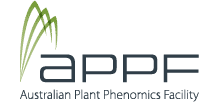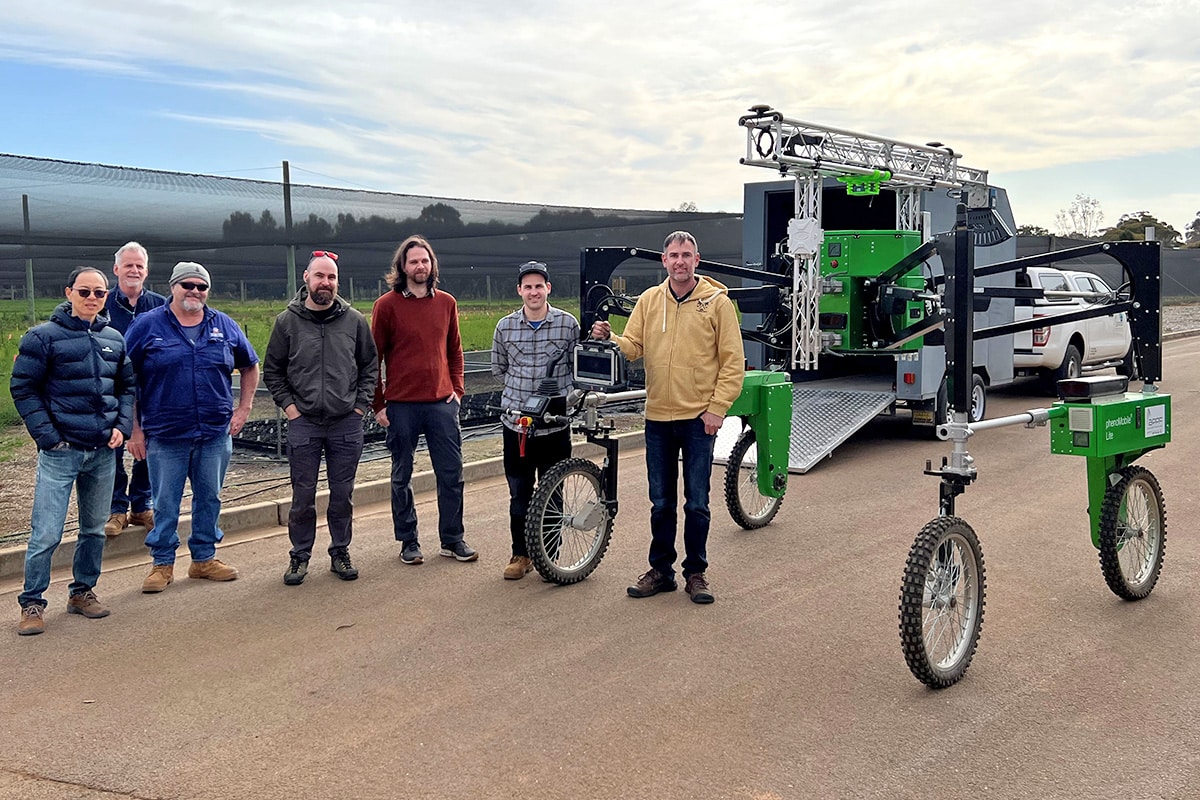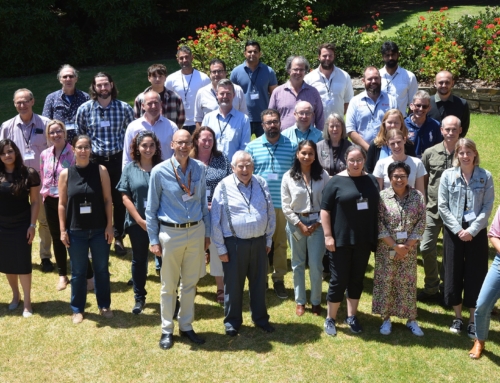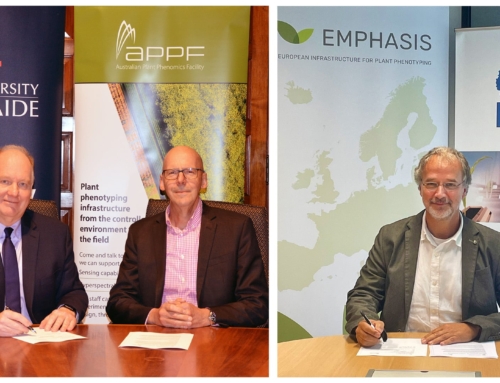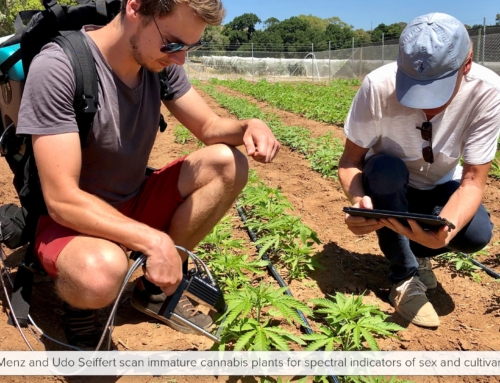phenoMobile®, the mobile field phenotyping platform developed at the High Resolution Plant Phenomics Centre (HRPPC), APPF’s CSIRO Canberra Node, has arrived in South Australia for use by University of Adelaide researchers associated with the APPF Adelaide Node, The Plant Accelerator®.
phenoMobile® is a movable in-field phenotyping platform that uses on-board sensors to non-destructively measure plant growth and health in field trials.
Dr Ken Clarke, from the University of Adelaide, says it offers numerous advantages as a field phenotyping system.
“Because the phenoMobile® has been built on the Open Robotics operating system, it is flexible and adaptable,” he says.
“It can easily accept new data streams if we want to change the sensors, for example.
“It is just a matter of installing the new sensor and driver, without any lengthy and potentially expensive update or unlock requirements.”
The current sensor package consists of a SICK LMS 4000 LiDAR sensor for recording plant height and structure, and a GreenSeeker spectral sensor for biochemical assessments.
The LiDAR uses pulsed laser light to measure distance and is able to generate precise 3D point clouds of plant canopies. These can then be analysed on a cloud-based analytical and data visualisation platform called phenoSMART® to measure canopy height and biomass.
The GreenSeeker sensor measures crop growth and development, providing field-scale data on plant development for scientific and agricultural research trials, as well as pre-breeding and breeding programs.
Another strength of the phenoMobile® is its agility. It is compact enough to be transported between field sites on a standard car trailer and the wheel set has an adjustable track width, which allows the platform to operate easily across a range of crop row spacings.
Dr Clarke says the phenoMobile® will initially be deployed in the plant raising facilities at the University of Adelaide’s Waite Campus, so staff can become more familiar with its operation and sensors. Once that ‘commissioning’ phase of its southern deployment has been completed, he says the University will look to build its own phenoMobile® for permanent use by the APPF Adelaide Node.
This will add to the valuable field phenotyping services the Adelaide team can provide, and help to meet growing demand for mobile services.
Meanwhile, Marni Tebbutt, Business Operations Manager for the High Resolution Plant Phenomics Centre says the team at the APPF Canberra CSIRO Node is observing the Adelaide Node deployment with interest.
“Cross node collaborations are important for sharing developments, technologies and ideas within APPF,” she says.
“It is fabulous that the CSIRO Node has been able to deploy the phenoMobile® to The Plant Accelerator® for the Adelaide field season and we look forward to receiving the Adelaide team’s feedback on the platform.”
APPF Executive Director Dr Susie Robinson agrees, observing “Cross-pollination of ideas, sharing technology and bringing different client use cases to the table means that as a national research infrastructure, we get more impact from our investments and can more readily scale our offerings to new geographies and client groups.
“We are really pleased to see phenoMobile® here, benefitting South Australian research and industry.”
